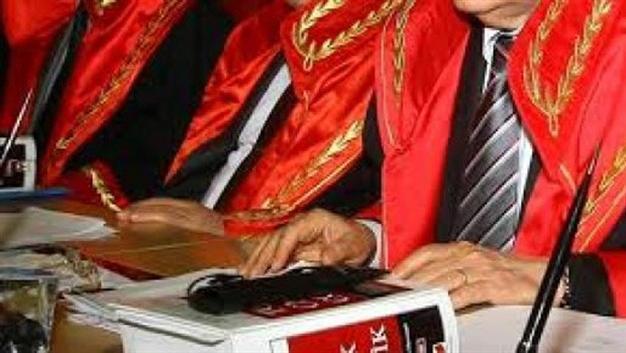Top body initiates yet another mass purge of Turkey's judiciary
ANKARA
 Turkey has witnessed yet another huge wave of mass purges in the judiciary, with the government replacing almost 1,000 judges and prosecutors, raising more and more question marks over the ruling Justice and Development Party’s (AKP) motives in the latest restructuring of the country’s top judicial body.
Turkey has witnessed yet another huge wave of mass purges in the judiciary, with the government replacing almost 1,000 judges and prosecutors, raising more and more question marks over the ruling Justice and Development Party’s (AKP) motives in the latest restructuring of the country’s top judicial body.A decree replacing 784 judicial officers and 104 administrative officers employed in the judicial bodies was released by the 1st Chamber of the Supreme Council of Judges and Prosecutors (HSYK) late Jan. 15.
Remarkably, prosecutors and judges who were involved in controversial cases, which opposition parties said were actually used by the government as tools for its revanchist moves in cooperation with its former ally, U.S.-based Islamic scholar Fethullah Gülen, were sent from the metropolitan city of Istanbul to less central provinces.
Composition of replacements
Among those, Ömer Diken, the chief judge of the Istanbul 1st Heavy Penal Court, where the controversial Balyoz coup plot case was held, was sent to Uşak. Hüseyin Ayar, also a prosecutor in charge of the Balyoz probe, was sent from the Küçükçekmece Office of Prosecutor in Istanbul to Samsun.
A former specially-authorized prosecutor who was in charge of the Istanbul-based probe into the outlawed Kurdistan Communities Union (KCK), Adnan Çimen, was sent from the Büyükmece Office of Prosecutor in Istanbul to Sivas.
Judge Mehmet Karababa, who was in charge of the Poyrazköy coup plot case, was sent from the Küçükçekmece Office of Judge in Istanbul to Mersin.
Judge Hikmet Şen of the Istanbul 16th Heavy Penal Court, which at the time oversaw a case into the OdaTV online news portal as part of the controversial Ergenekon coup plot case, was sent to the Van Office of Judge.
The same heavy penal court was previously in charge of the biggest match-fixing investigation in Turkish football history. The case has recently came back onto the agenda after Galatasaray Chairman Duygun Yarsuvat claimed that a 2011 probe into the matter was launched when Fenerbahçe Chairman Aziz Yıldırım refused to pay $50 million to the Gülen movement.
Prosecutor Mehmet Berk, who was in charge of the match-fixing probe, was sent from the Bakırköy Office of Prosecutor in Istanbul to Balıkesir.
A former specially-authorized prosecutor, Sadrettin Sarıkaya, who at the time acted to detain the chief of national intelligence Hakan Fidan on Feb. 7, 2012, but was also removed from the probe on Feb. 11, 2012, was also among those who have been replaced. Sarıkaya was sent from the Anadolu Office of Prosecutor in Istanbul to Erzurum.
Contentious
In its latest annual progress report on Turkey released in October 2014, the European Commission underlined concerns over the state of affairs surrounding the judicial structure, which has become a key battleground between the government and what the AKP describes as a “parallel state” affiliated to the Gülen movement.
It listed amendments to the law on the HSYK, the subsequent dismissal of staff, as well as numerous reassignments of judges and prosecutors as sources of serious concerns over the independence, efficiency and impartiality of the judiciary, respect for the rule of law and the separation of powers.
Earlier on Jan. 15, the 2nd Chamber of the HSYK announced that it has suspended five prosecutors working on a contentious investigation into an alleged delivery of arms to Syrian rebels that were intercepted on the border last year. The HSYK said the decision was taken so as not to hamper the inquiry or tarnish the reputation of the judiciary.
The move came a day after Turkey imposed an all-out media blackout, including on Facebook and Twitter, prohibiting publication of reports on the issue.
















